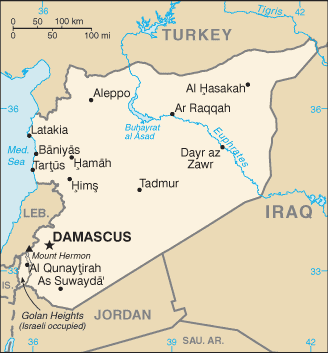Syrian President Bashar al-Assad has said he will commit to the UN plan to end the violence so long as the armed opposition halt their attacks and international powers stop aiding them.
 The plan brokered by UN envoy Kofi Annan calls for a total cease-fire, withdrawal of Syrian troops from opposition areas and access for humanitarian services. Both the Assad regime as well as elements of the rebel opposition have publicly accepted the plan, although realities on the ground have not changed.
The plan brokered by UN envoy Kofi Annan calls for a total cease-fire, withdrawal of Syrian troops from opposition areas and access for humanitarian services. Both the Assad regime as well as elements of the rebel opposition have publicly accepted the plan, although realities on the ground have not changed.
In a letter to the leaders of the BRIC economic powers – Brazil, Russia, India and China – Assad explained “the countries which support the armed groups with money and weapons must be persuaded to stop this immediately.”
Leaders at the Arab League Summit in Iraq on Thursday also endorsed Annan’s plan, with Iraq’s Prime Minister Nouri al-Maliki warning that arming either side in Syria would lead to a “proxy war.” Arab countries seem split on what to do about Syria, though, with some like Qatar and Saudi Arabia firmly in the interventionist camp.
Incidentally, most powers have rhetorically lent support to Annan’s mission to reach a political settlement and end the violence, but they continue to craft their own policies that are probably prolonging the conflict. The U.S. announced recently a plan to send “non-lethal” aid to the Syrian rebels and Britain has said it is doubling non-military aid to opponents of Assad and expanding its scope to include equipment.
In fact, Washington had already announced that it had been providing humanitarian aid to opposition fighters and administration officials confirmed last Sunday that the U.S. had already begun to supply some aid, including communications gear, to the rebel Free Syrian Army.


